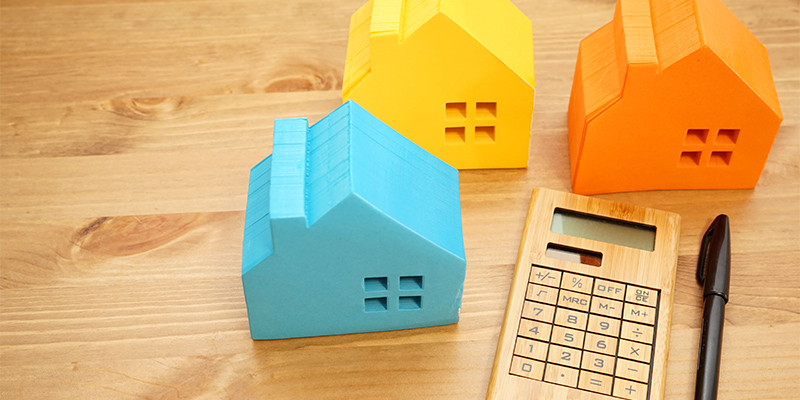How Can A HOA Management Software Keep Up With Service Requests
One of the duties of HOA boards and management companies is to oversee and respond to service requests from homeowners. Over time, requests and work orders begin to pile up, and manual processing no longer seems realistic.
Track Your Service Requests Better With HOA Management Software
In a homeowners or condominium association, residents make all kinds of requests all the time. From maintenance requests to architectural requests, board members must manage and respond to these requests in a timely manner. As associations grow larger, though, service requests can start to pour in by the hundreds. The same goes for HOA management companies with multiple associations under their supervision.
When you have a lot of homeowners to please, you must avoid delays and unresponsiveness, especially when it comes to emergency requests. Thankfully, technological advancements have made it possible to simplify service request management.
Today, community associations and management companies can purchase HOA management software as an all-around tool. This typically comes with a diverse set of modules, such as a Violations and Architectural Request module, designed to make processes more efficient.
Here are the ways an HOA management software can help you keep up with service requests:
1. All-in-One Location
 Traditional processes rely on physical copies of request forms, usually filed or submitted manually. This setup, though, requires you to sort through multiple forms and documents. It also carries the risk of misplacing forms, especially if you lack a good filing system.
Traditional processes rely on physical copies of request forms, usually filed or submitted manually. This setup, though, requires you to sort through multiple forms and documents. It also carries the risk of misplacing forms, especially if you lack a good filing system.
When you invest in HOA management software, you can access all the service requests in one neat location. With a few simple clicks of your mouse, you can also sort orders by date, name, nature, or sender. Best of all, you can look for specific documents using a search function.
You can choose to put your system in the cloud or limit it to your network. Either way, a single location for all your service requests makes for easy access. Somehow, it is also much easier to manage work orders when they come in digital form rather than piles of paperwork.
2. Streamline Processing
When it comes to processing, manual setups usually require a team of people, each one with a specified task. As forms get passed around from one person to another, they can easily get lost in the hubbub.
Before long, homeowners will be following up on the status of their request, and you either have to look for the form in a sea of records or ask the homeowner to file another request at the risk of igniting their wrath. Worse yet, you will start pointing fingers as to who is responsible for the loss.
With an HOA management system, though, you can process service requests like a well-oiled machine. A typical work orders module will allow you to assign requests to individuals and even has an audit trail to pinpoint who exactly touched the request last. It is an asset to all self-managed HOAs.
3. Faster Response Rate
A more streamlined process will naturally lead to increased efficiency and a faster turnaround. With the help of an HOA management program, you can search, review, approve, or deny requests at a quicker rate. Most systems even come with email integration so that you can send work orders to vendors and reply to homeowners without leaving your seat. Plus, a faster response time equates to happier residents.
4. Simplified Actions With the Use of Commands
How many times have you come across the same request from different homeowners? Manual processing requires you to staple them all together. But, with HOA management software, you can merge similar tickets with ease.
This will allow you to declutter your Inbox and free up some storage space without needing to delete any requests. All requesting homeowners will still be attached to the ticket, so you don’t have to worry about leaving anyone out. A lot of systems also allow you to duplicate requests if the need arises.
5. User Access Control
 You may have a number of people using the same software for different purposes. The beauty of going digital is that you can restrict user access so that only individuals with clearance can manage certain modules.
You may have a number of people using the same software for different purposes. The beauty of going digital is that you can restrict user access so that only individuals with clearance can manage certain modules.
Those responsible for tracking and managing service requests can be limited to just that module. This way, they can’t obtain or view any sensitive information.
6. Data Security
The problem with physical request forms is the risk of getting lost or blemished. With the world moving to a largely digital format, the problem now lies with privacy, security, and data loss.
Modern problems require modern solutions. Whether you put your system in the cloud or restrict it to a local network, performing backups is generally painless. Some programs can even execute automatic backups at fixed times. In terms of privacy and security, software developers make sure to place security protocols, such as SSL encryption, to protect your information. Password protection is also a standard.
7. Assess Performance
The best way to improve your process is to take a step back and review the statistics. This is nearly impossible with manual setup unless you are meticulous enough to time how long it takes for each service request to get processed. A digital approach, on the other hand, makes it easier to measure performance. Using management software, you can pinpoint areas of improvement, minimize delays, and optimize your system.
8. Convenience
Arguably the biggest selling point of a digital system is convenience. Gone are the days of filling out handwritten or printed forms and then sending them through mail or email. An HOA management software allows homeowners to send service requests directly to your inbox. Some programs even let you attach photos as supporting documents.
9. Scalable
A chief concern among homeowners associations is how to scale their processes as the community grows. More new homeowners mean more service requests. Before you know it, you will find yourself buried in a mountain of paperwork. The beauty of HOA management software is that it is expansion-ready. The only real change you need to make is adding more user accounts to the homeowner online portal.
The Future Is Digital
Answering and addressing service requests is a primary responsibility of HOA boards and management companies. The job can come as a challenge, though, if you continue to use traditional methods. Step into the modern world and make life much easier with HOA management software.
While you can buy separate modules with distinct functions and attempt to stitch them together yourself, it is much better to invest in an all-around HOA management system. This is where Condo Manager comes in. Call us at 800-626-1267 to learn more about our software or fill out an online form to schedule a free demo of our product.



 One of the most obvious benefits of homeowner online accounts is convenience. Setting up an online portal where homeowners can access various information is useful for all parties involved — HOA management, board members, and homeowners.
One of the most obvious benefits of homeowner online accounts is convenience. Setting up an online portal where homeowners can access various information is useful for all parties involved — HOA management, board members, and homeowners. How many times have associations fallen short on income because homeowners
How many times have associations fallen short on income because homeowners  While homeowner portals do provide plenty of advantages, they are virtually useless without proper education. An association or HOA management company that opts to use a website or portal should take the necessary steps to teach all community members how to use it.
While homeowner portals do provide plenty of advantages, they are virtually useless without proper education. An association or HOA management company that opts to use a website or portal should take the necessary steps to teach all community members how to use it.
 Keeping track of finances is one of the most complex and time-consuming aspects of managing an HOA. Proper financial management is also key to the success of your community.
Keeping track of finances is one of the most complex and time-consuming aspects of managing an HOA. Proper financial management is also key to the success of your community. Mobile compatibility is an important HOA software feature. Even if you are out of the office and far from a computer, you will still be able to accomplish important community management tasks. Homeowners will also be able to access all the information they need through their smartphones or other mobile devices.
Mobile compatibility is an important HOA software feature. Even if you are out of the office and far from a computer, you will still be able to accomplish important community management tasks. Homeowners will also be able to access all the information they need through their smartphones or other mobile devices.
 With using a program, you no longer need to flip through hundreds of physical records to find the one you are looking for. All you need to do is type in the record’s filename and locate it with just the click of a button.
With using a program, you no longer need to flip through hundreds of physical records to find the one you are looking for. All you need to do is type in the record’s filename and locate it with just the click of a button. Far too often, self-managed associations fall behind on tasks and schedules. This is because HOA boards typically consist of community volunteers with full-time jobs and other priorities.
Far too often, self-managed associations fall behind on tasks and schedules. This is because HOA boards typically consist of community volunteers with full-time jobs and other priorities.
 Although paying dues is a regular part of HOA living, many homeowners still forget to settle them on time. The HOA board should send out timely reminders before a fee is due.
Although paying dues is a regular part of HOA living, many homeowners still forget to settle them on time. The HOA board should send out timely reminders before a fee is due. Every state has its own set of rules when it comes to late HOA fees, though some states don’t have them at all. The HOA board must refer to state and local laws to ensure it does not run into legal trouble.
Every state has its own set of rules when it comes to late HOA fees, though some states don’t have them at all. The HOA board must refer to state and local laws to ensure it does not run into legal trouble.
 There are a few factors that can influence how much an HOA charges homeowners in monthly dues. A high delinquency rate, for instance, can tip the scales.
There are a few factors that can influence how much an HOA charges homeowners in monthly dues. A high delinquency rate, for instance, can tip the scales.
 HOA boards must first send an HOA special assessment notice to inform homeowners of an impending collection. However, if the amount exceeds the HOA special assessment limit stipulated in the governing documents, the board must obtain approval from the homeowners.
HOA boards must first send an HOA special assessment notice to inform homeowners of an impending collection. However, if the amount exceeds the HOA special assessment limit stipulated in the governing documents, the board must obtain approval from the homeowners. HOAs can rely on their insurance coverage to cover the costs of property damage due to natural disasters. However, there are instances when the insurance payout is not enough to cover.
HOAs can rely on their insurance coverage to cover the costs of property damage due to natural disasters. However, there are instances when the insurance payout is not enough to cover.
 HOA board meetings are held throughout the year. Depending on your governing documents, board members may be required to meet monthly or quarterly.
HOA board meetings are held throughout the year. Depending on your governing documents, board members may be required to meet monthly or quarterly. Homeowners’ input is very important but not everyone has the time to attend HOA meetings. To address the many concerns of homeowners but also maintain structure and brevity, consider putting up a community suggestion box.
Homeowners’ input is very important but not everyone has the time to attend HOA meetings. To address the many concerns of homeowners but also maintain structure and brevity, consider putting up a community suggestion box.
 Many HOA boards struggle with the fulfillment of their daily responsibilities either due to a lack of time or expertise. If that situation sounds familiar to you, then perhaps it is time to receive help from a professional HOA management company.
Many HOA boards struggle with the fulfillment of their daily responsibilities either due to a lack of time or expertise. If that situation sounds familiar to you, then perhaps it is time to receive help from a professional HOA management company. It is important to understand that not all companies offer the same services and have the same fee structure.
It is important to understand that not all companies offer the same services and have the same fee structure.
 Social media is another viable option, though not everyone is active on social media or even has an account.
Social media is another viable option, though not everyone is active on social media or even has an account. A printed homeowners association newsletter used to be the standard communication tool.
A printed homeowners association newsletter used to be the standard communication tool.
